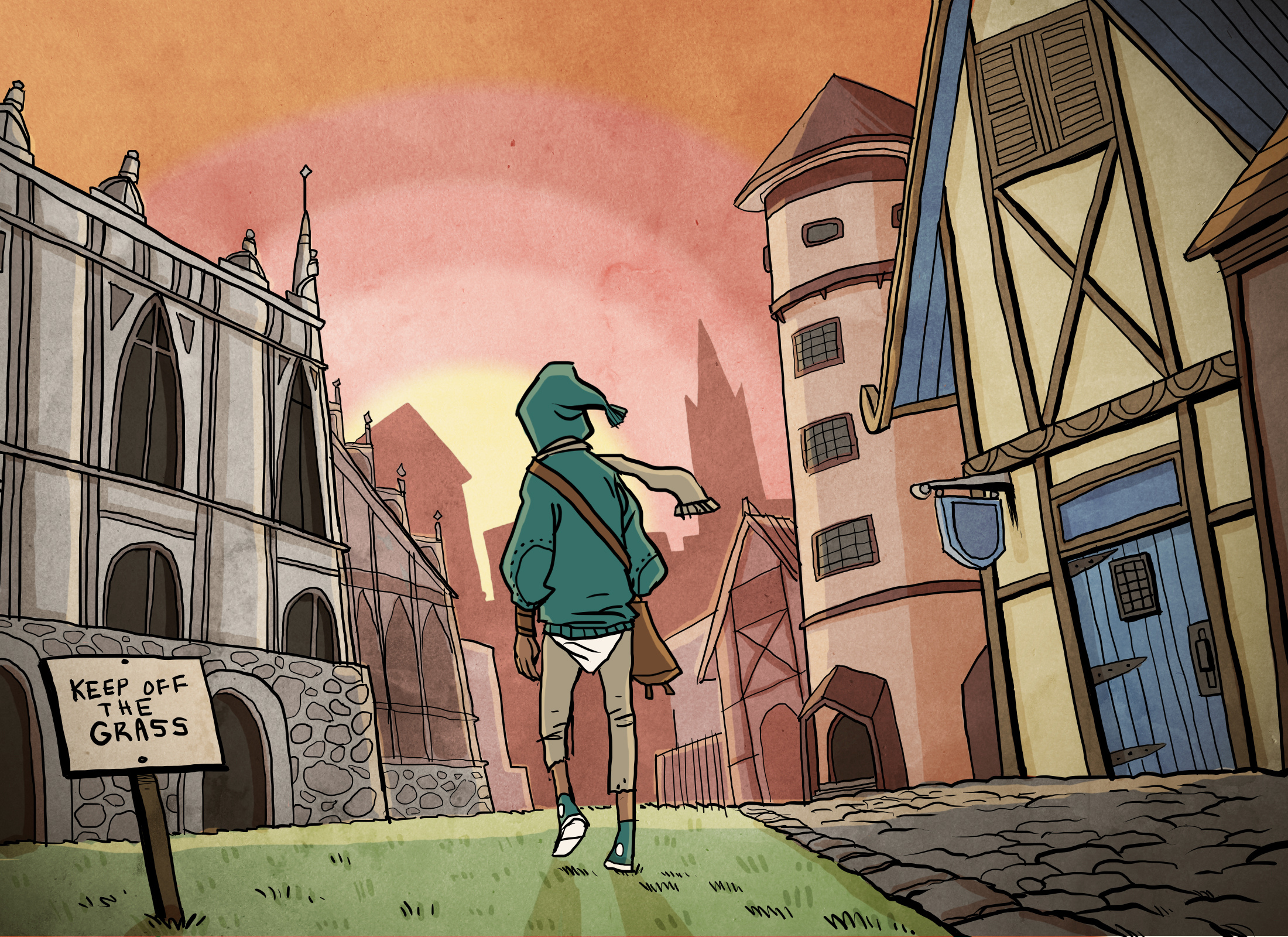

As you step out of the carriage, the setting sun casts a warm glow across the charming village. Not sure where you are going, you decide to ask a student milling around the grounds of the university for directions. You cross over the lawn ignoring a large sign that says “KEEP OFF THE GRASS!”
“Excuse me!” a female student shouts at you in a thick German accent. “Did you not see the sign? Bitte. Stay off the grass!”
“Oh, I’m sorry,” you apologize. “I didn’t think it would be a big deal.”
The fräulein looks scornfully at you. “What were you thinking? Obviously, not thinking at all. Around here we have rules that must be followed!”
You hang your head in shame. “I guess you’re right. I suppose if everyone tromped on the grass like an elephant, then these grounds would be destroyed.”
“Ya, that’s true,” the woman considers, “but it is more than just the consequences of such an action. Preserving the beauty of nature is a good thing and everyone should be motivated to preserve nature. So the rule that everyone should do their best to preserve the beauty of nature is a maxim that we should all follow. Therefore, it is your duty to follow the rules like keep off the grass! Got it?” the woman reprimands.
“Again, I’m sorry,” you say now humbled. “I’m looking for the King Immanuel Kant. Could you provide directions?”
“King Kant?” replies the woman. “There is no king or könig here! No one wears a crown and yet we all wear a crown!”
Utterly befuddled about what that means you ask, “But isn’t this Kantian Kingdom?”
“Ya, it is,” comes the terse reply. “In Kantian Kingdom everyone is treated as a moral king or queen, able to legislate or command universal moral law as if it were binding on all people in all places. Each of us is a king or queen because each of us is subject to our own rulings. We need no external authority beyond our own reasoning ability to discover duty regarding what is right or wrong. And we ultimately have the power to be self-governing. Now if you are looking for Herr Kant, usually you can find him in his office, but at this time of the evening, he’ll be heading towards the observatory to gaze upon the stars. In fact, it is now 6:54, so Herr Kant will be passing this way in one minute – you can set your clock by it!”
Sure enough, a gentleman is walking determinedly down the sidewalk towards the observatory. You hurry to catch up with him, instinctively knowing that you shouldn’t dare to make Kant late. As you enter the observatory, Kant gazes up to the sky and says with wonder, “Two things awe me most, the starry sky above me and the moral law within me.”[1]
“Yes, Herr Kant,” you reply. “That is why I’m here – to learn about moral law. Might I spend the evening with you to learn about what I’ve heard are your deontological theories?”
“I’m always willing to spend time with an earnest student. The mind is a wonderful thing, you know. It shapes our experiences, gives us the dimension of space, the stars above us, time, and of course, the mind provides rational thought which is the foundation of ethical behavior.” Kant continues, “All our knowledge begins with the senses, proceeds then to the understanding, and ends with reason. There is nothing higher than reason.”[2]
[1]Immanuel Kant, Critique of Practical Reason, 1788.
[2]Immanuel Kant, Critique of Practical Reason, 1788.